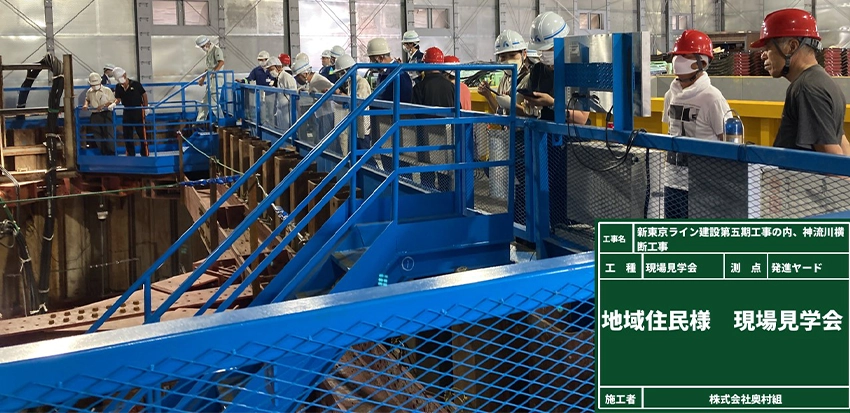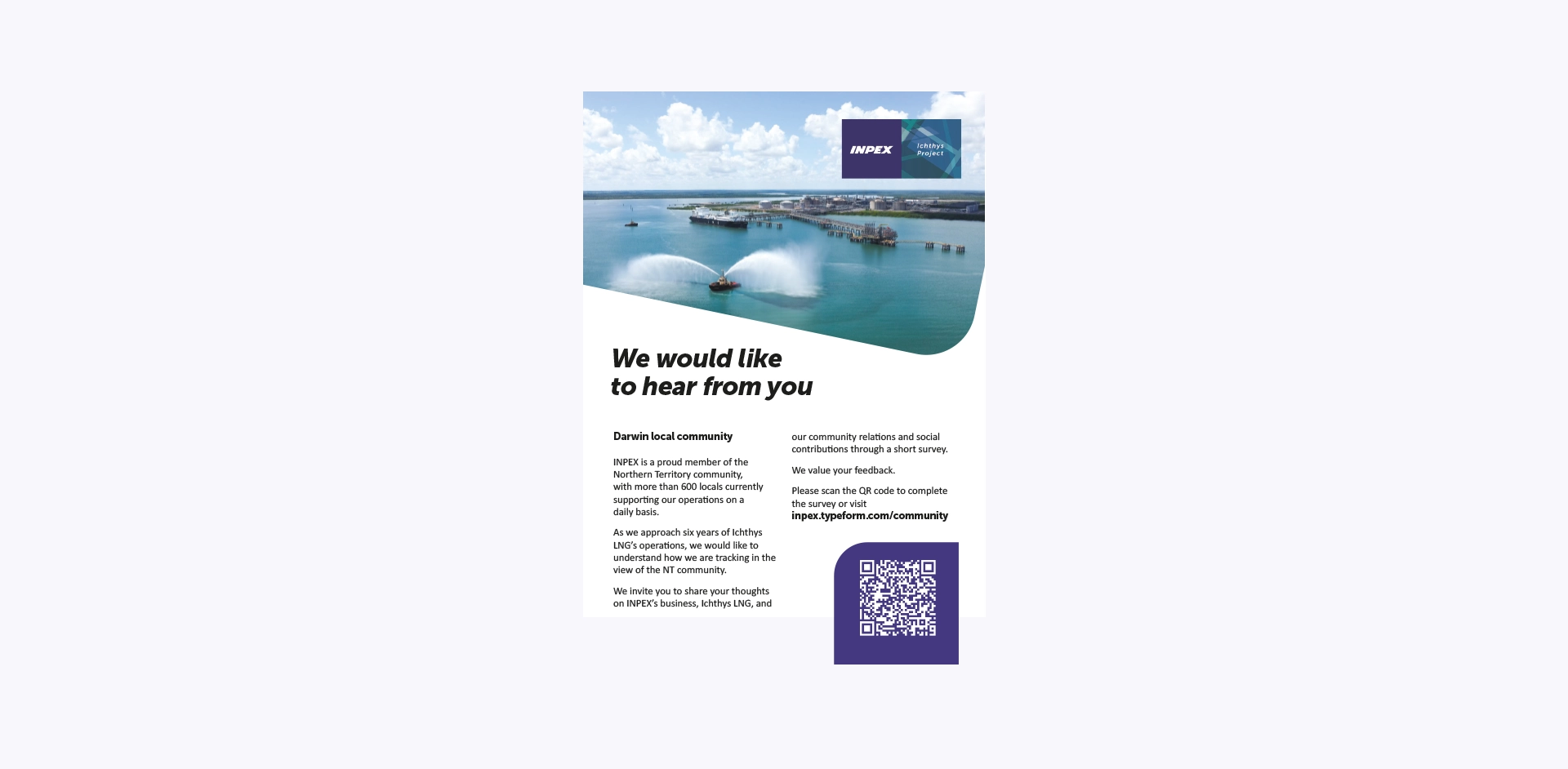Addressing Community Feedback
In accordance with the principles outlined under “Our Policy,” INPEX records and manages the feedback it receives from local communities, offering suitable responses as required.
At our main sites, located Japan, Indonesia, Australia, and Abu Dhabi, we receive community feedback via diverse channels. This includes telephone, email, letter, and face-to-face conversations with our office representatives. In Indonesia, we respond through our employees who are based not only in Jakarta, where our office is, but also at our project sites. In Abu Dhabi, we distribute project brochures and send SMS messages through local government bodies, to broadly publicize the contact details of our complaint hotline (telephone and email) and ensure we appropriately respond to complaints and other inquiries from local communities.
Feedback received is shared between relevant personnel and used to monitor community sentiment. We strive to identify any new areas of concern as early as possible and minimize potential risks. Should we receive grievances from local communities, we respond in the local language and follow our established procedures to ascertain the facts and provide appropriate responses, in collaboration with relevant stakeholders.
No grievances were recorded under those procedures during FY2023.
Community Feedback and Responses
This pie chart shows the breakdown of inquiries and feedback from local communities, received during FY2023 in line with our external stakeholder response procedures, at sites where we act as the project operator.
Breakdown of inquiries and feedback received from local communities in Japan, Australia, and Indonesia in FY20231
Grievance Management
INPEX undertakes community and stakeholder engagement activities based on the principles of timely, integrated, consistent and responsive communication. These principles are consistently applied in managing feedback and grievance, as well as the escalating stakeholder issues.
INPEX recognizes grievances may arise from external stakeholders in relation to its activities and has a defined process for identifying, investigating and resolving any such external grievances.
Case Study: Pre-construction Briefings and Consent (FPIC)

When constructing gas pipelines in Japan, we ensure free prior and informed consent (FPIC) is received from local governments, and residents and companies along the route. To do this, we offer pre-construction briefings, circulate notices about the work and provide worksite tours.
As a standard practice, we typically select pipeline routes that pass under public land, such as public roads, thereby minimizing the need for residents to relocate.
As an exception, when conducting shield tunneling and jacking work, we negotiate with landowners along the route to lease the minimum area of land required for construction period. We then pay a fee to lease the land for the duration of work. When leasing agricultural land, such as rice paddies and vegetable gardens, we financially compensate farmers for the duration of our work and according to the crops being grown. Based on the construction plan, we invite landowners to briefings and site visits before work commences. After the construction is completed, we promptly restore and return land to farmers.
Case Study: Complaints and Responses
One complaint received concerned noise coming from our Nagaoka Field Office at night. After discussing the details with the complainant, we quickly implemented additional noise mitigation due to the existing measures being insufficient.
Another complaint concerned a damaged steel fence at the Akita Field Office. After receiving a report indicating potential danger to people passing by, we repaired it immediately.
Case study: Perceptions survey providing insights into stakeholder engagement

Following the conduct of a similar activity in Western Australia in 2022, in 2023 a comprehensive stakeholder survey was conducted to measure perceptions of INPEX and the company’s economic and social contribution to the Northern Territory, with a focus on Darwin—one of our key communities in Australia.
Across a 12-week engagement period, a consultancy firm on behalf of INPEX, undertook 39 face-to-face interviews with government, peak industry associations, local businesses, and community stakeholders.
The survey campaign also generated 184 responses from the general public via a digital survey and 26 responses from individual businesses at a business networking event.
The survey results highlighted an overall positive sentiment with:
- 56% of respondents agreeing or strongly agreeing INPEX is a trusted organization;
- 60% of all respondents agreeing or strongly agreeing INPEX creates value for communities;
- 60% of all respondents agreeing or strongly agreeing INPEX has a strong presence in the community; and
- 69% agreeing INPEX contributes to the Northern Territory’s economy.
The digital survey targeting the general public found 66% of community respondents reported knowing an employee or contractor at INPEX and were more likely to respond favorably to the values-based questions.
In terms of overall findings, the survey indicated INPEX’s social investment programs, relationship with the Larrakia People and the contribution to the Darwin community are considered a benchmark across the energy industry.
The survey outcomes identified areas of opportunity for INPEX to increase awareness around future activities such as carbon capture and storage as well as sharing its work in the community through case studies.
